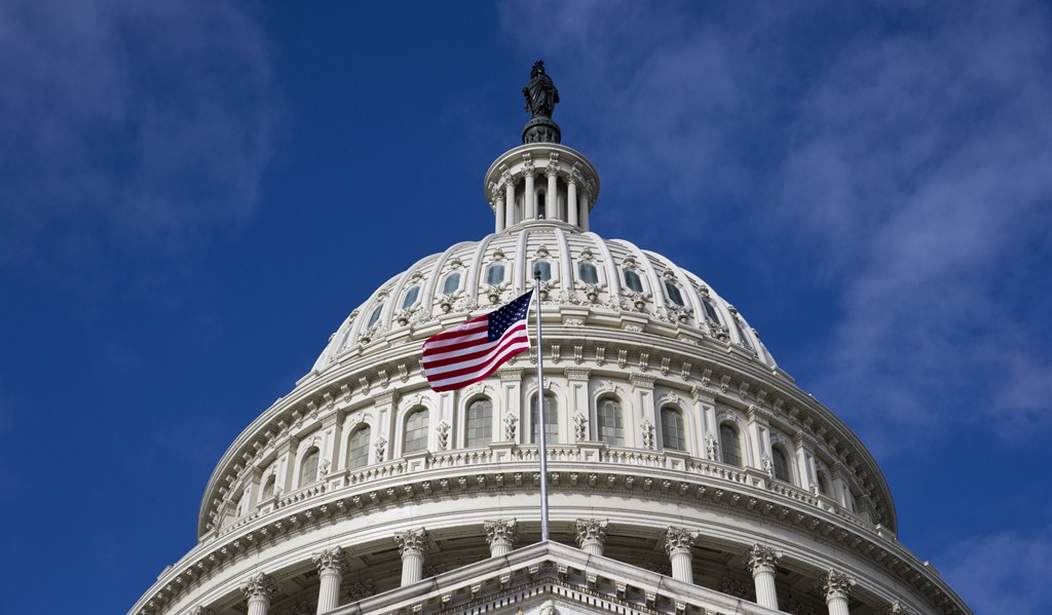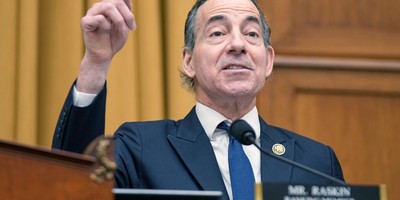During his eight years in office, Barack Obama is on pace to have increased the national debt by a horrific $8 trillion -- and, ironically, the folks on Wall Street and the mavens of the media still portray congressional Republicans as the fiscal bad boys for trying to slow down the blizzard of borrowing.
So here we go again. Treasury Secretary Jack Lew announced this week that Congress will bump up against the current debt ceiling in early November and he and Obama want a "clean" debt extension with no strings attached. Lew says that failure to pass a debt ceiling on time will rile Wall Street and put in jeopardy America's "strong and steady growth" (sic).
Meanwhile, outgoing House Speaker John Boehner says he will "clean the barn" on this issue before he leaves office, and some are interpreting this as a sign that he will avoid conflict and agree to Obama's demands. The plan being hatched would raise the debt limit by another $1 trillion or even $2 trillion to get past the election.
Some on the left argue that we should not even have a federal debt ceiling, that the government should have a rubber stamp to borrow at will. For the big spenders in both parties, this would conveniently eliminate one of the last checks and balances against runaway spending.
For conservative Republicans to agree to Obama's blackmail demands would be lousy policy and even worse politics. Washington and Wall Street may not be at all concerned about an $18-trillion debt, but voters sure are. Congress seems tone deaf to the rage of primary voters as evidenced by the early success of such non-politicians as Trump.
Recommended
If Republicans don't get this right, it could so demoralize conservatives that it would doom their chances of winning the White House in 2016 no matter who the candidate is.
So the answer is no. Fiscal conservatives should demand reasonable conditions to reduce future borrowing in the future.
The debt limit is a time to hit the pause button on Washington and for lawmakers to figure out how they can discipline themselves in the years to come. It's a blunt tool, but it's about the only one left in Washington. It helped implement the Gramm-Rudman spending cuts in the 1980s and then the budget caps and sequester in 2011 -- two of the few useful restraints on government in recent decades.
Last year the U.S. government collected more tax revenue than any government in history, an incredible $3 trillion, and it will collect even more this year. The 18.5 percent of national output going to Uncle Sam is above the 40-year average, even though the economy is running well below average. The government's cash inflow is not the problem here; the outflow is the problem.
So here is a game plan to deal with the debt-spending addiction. David Malpass, the respected New York-based economist at Encima Global, and I have drafted a plan that would provide reasonable restraints this time around. Currently the publicly held debt-to-GDP ratio stands at a 74 percent. Debt is expected to drift up closer to 100 percent of GDP over the next 24 years. That's a danger zone for sure.
This would move the debt in the opposite direction. It would require Congress to reduce the debt-to-GDP ratio by one percentage point per year for the next 24 years to get our debt burden down to 50 percent -- a safe zone. This would reduce deficit spending by trillions of dollars over the next two decades. To enforce this target, an automatic sequester cut to all programs other than Social Security would be triggered whenever the debt-to-GDP limit comes in above the target. A three-fifths vote of both houses of Congress would be needed to modify the reductions.
Because this target is tied to economic performance, it would give Congress and the White House an incentive to grow the economy with job-creating tax reforms and so on.
We are not recommending a government shutdown. Conservatives should simply push this debt-cap formula as a condition for their votes to raise the debt ceiling. If team Obama/Pelosi/Reid says no, Republicans should place the responsibility for raising the debt limit squarely on their shoulders.
Every three months, this process should be repeated until the Democrats either agree on a new debt-limit law that restrains spending or they have to explain to voters why not. The presidential candidates in both parties should weigh in, too. At the very least, this will raise the political visibility of our debt crisis in Washington.
The White House and many on Wall Street, who care only about their own profits, will whine that this is fiscally irresponsible. Actually, borrowing $500 billion to $1 trillion a year is what is dangerous and irresponsible. If Republicans won't fix the borrowing behavior of a runaway government, they are enablers and deserve at least half the blame.

























Join the conversation as a VIP Member